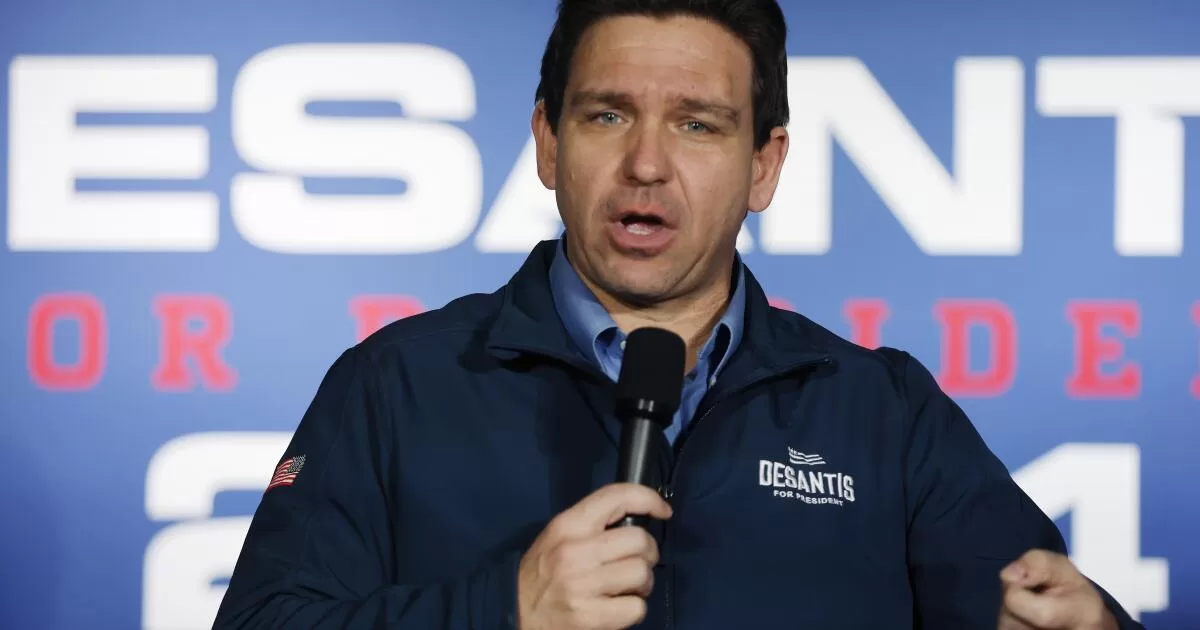DeSantis hesitated, waiting 197 days after his massive reelection victory as Florida governor to launch his presidential campaign in May 2023. By then, Trump was back in business big time, using his numerous legal entanglements like the drivers in the “Fast and Furious” franchise use nitrous oxide.
During a CNN-produced town hall event Tuesday, DeSantis said, “If Donald Trump is the nominee, the election will revolve around all these legal issues, his trials, perhaps convictions if he goes to trials and loses there, and about things like Jan. 6.”
He meant that as a warning to fellow Republicans. And he was right. But the disconnect is whether GOP voters actually see “all these legal issues” as a problem. As it turns out, a referendum on Trump’s mistreatment (as his voters see it) and subsequent legal problems is exactly the race most Republicans appear to want this November. Nothing will feel better to them than watching Trump beat Biden fair and square, a moment of euphoric vindication.
DeSantis correctly observed in his drop-out video that “a majority of Republican primary voters want to give Donald Trump another chance. They watched his presidency get stymied by relentless resistance, and they see Democrats using lawfare to this day to attack him.”
DeSantis and several other candidates have argued from the beginning that Trump can’t win if his problems, instead of Biden’s myriad issues, are front and center. But the national polls — right now, at least — don’t back that up. Republican voters seem to have concluded that Biden’s weakness means he’s destined to lose, so they might as well beat him with the person who would provide the most personal satisfaction: Trump.
DeSantis did face quite an onslaught. Trump relentlessly and viciously attacked him from start to finish. The “Never Trump” crowd did too. So did the Democrats. And the political media. DeSantis, for a time, unified a bunch of people who supposedly hate each other but need Trump-flavored air and water to stay alive. So they joined forces to bury the guy who presented the biggest threat to that ecosystem.
DeSantis helped them, of course, by shunning the kinds of media opportunities that could have allowed him to push back on the more ridiculous attacks he faced. He finally changed course late in the race and was actually pretty sharp in front of the so-called corporate media he often derides. But the damage was done by then.
DeSantis was on the receiving end of more negative attack ads than any other candidate in the race, of either party. As of Jan. 8, he had faced more than $44 million in negative attacks from independent groups. By comparison, Trump and Biden had each faced just $21 million worth of vitriol.
DeSantis was a technically good candidate for the last couple of months, his campaign’s internal drama notwithstanding. His public appearances were crisp. He delivered solid content in town hall meetings. He beat former South Carolina Gov. Nikki Haley in a debate in Des Moines just before beating her in the Iowa caucuses.
But by the time he found his groove, it was too late. Trump’s voters tell pollsters there’s nothing that will cause them to change their minds. DeSantis’ exit leaves one (semi) serious candidate in the race against Trump — Haley — and she’s likely to be gone sooner rather than later. Trump leads her in the New Hampshire polls ahead of Tuesday’s primary, and that’s the most fertile ground she’s ever going to get.
This primary is effectively over, and we are in for a long general election campaign between two candidates with significant soft spots. It isn’t clear to me which has the advantage, but the rematch that the American people have repeatedly told pollsters they don’t want is now upon us.
Scott Jennings is a former special assistant to President George W. Bush and a senior CNN political commentator. @ScottJenningsKY
